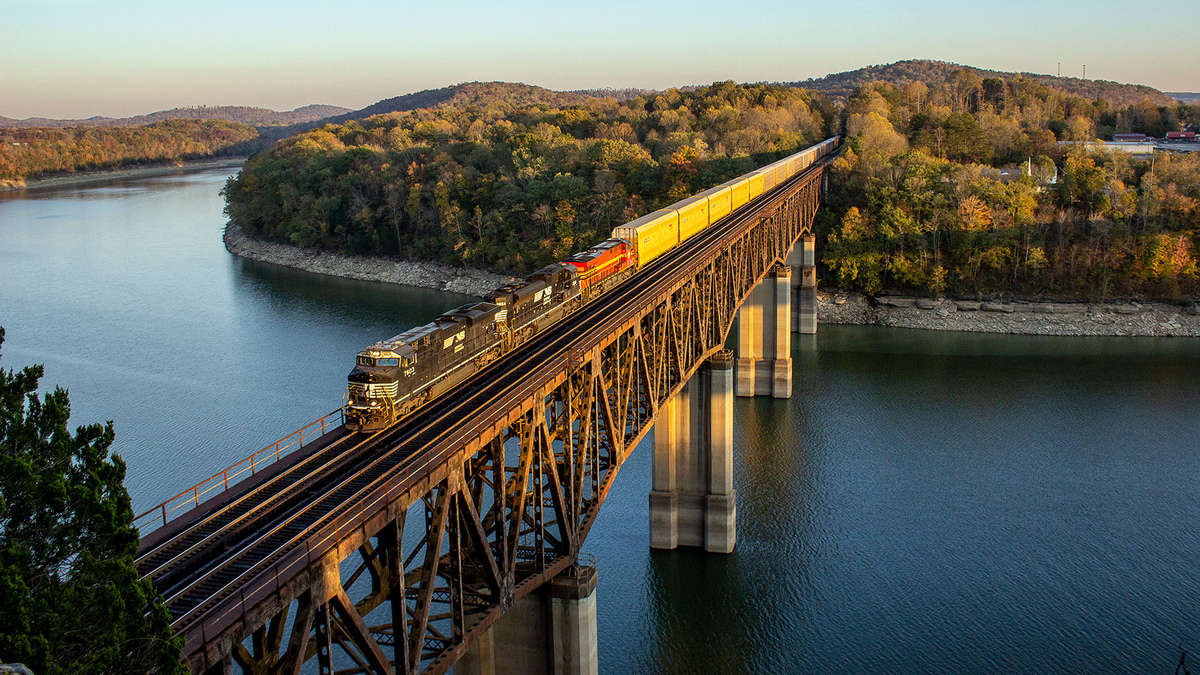
The Federal Laws About Railroad Tracks
Its important to understand the laws about railroad tracks. Partnering with a Midwest railroad contractor that understands the many federal railroad laws governing our all-important railroad system is crucial for a successful and legally compliant job. While many states have regulations around their railroads, there are three federal laws which generally preempt them. Understanding these federal laws can ensure any railroad work you do is not only legal, but also safe.
Here is an overview of some of the federal railroad laws which affect railroad construction and maintenance.
Federal Laws About Railroad Tracks
The Interstate Commerce Commission Termination Act of 1995
The Interstate Commerce Commission was the first regulatory commission established in the US, back in 1887. Although the agency was terminated at the end of 1995, with its functions either being transferred to the relevant departments, or deregulated.
The Interstate Commerce Commission Termination Act (ICCTA) preempts state and local regulation of matters regulated by the Surface Transportation Board. This includes the construction, operation, and abandonment of rail lines.
ICCTA Permitting/Preclearance Requirements
Here is a summary of state and local permitting or preclearance requirements preempted by the ICCTA, because they could be used to affect the ability of a railroad to perform part of its operations or to proceed with activities authorized by the Surface Transportation Board.
- Preconstruction permitting of a transload facility.
- Environmental and land use permitting.
- Demolition permitting process.
- The requirement that railroad companies obtain state approval before the discontinuation of station agents, abandoning rail lines, or the removal of side tracks or spurs.
Surface Transportation Board Regulations
Here is a summary of areas of state or local regulations directly regulated by the Surface Transportation Board.
- State statutes regulating railroad operations.
- State statutes regulating the contracts between rail carriers.
- Attempts to condemn railroad tracks or nearby land.
- State negligence or nuisance claims.
State and Local Activities NOT Regulated by the ICCTA
Here is a summary of the areas of state or local regulations which aren’t preempted by the ICCTA.
- Voluntary agreements entered into by the railroad.
- Traditional police powers over the development of railroad property, at least to the extent that the regulations protect the public health and safety, are settled and defined. These need to be obeyed with reasonable certainty, entail no open-ended or extended delays, and can be approved or rejected without the exercise of discretion on subjective questions.
- Zoning regulations applied to railroad-owned land used for non-railroad purposes by a third party.
- Miscellaneous laws and acts determined to not have anything to do with transportation.
- State statute requiring railroads to pay for pedestrian crossings across railroad tracks.
Laws About Railroad Tracks: The Federal Railroad Safety Act of 1970
The Federal Railroad Safety Act (FRSA) of 1970 attempts to “promote safety in every area of railroad operations and reduce railroad-related accidents and incidents”. This is achieved through the contemplation of a comprehensive and uniform set of safety regulations in all areas of railroad operation. The FRSA assigns regulatory responsibility to the Federal Railroad Administration (FRA), who have responsibility over all areas of railroad safety and the authority required to investigate and prosecute violations of any rail safety law.
The FRA uses four acts to guide safe railroad operations.
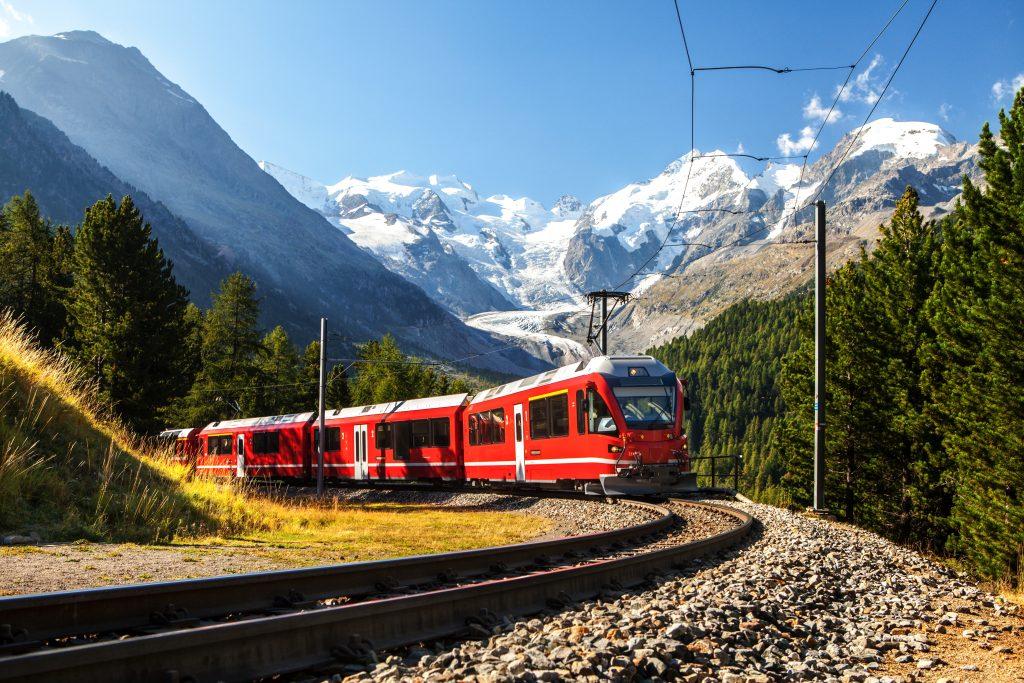
The Signal Inspection Act
This dictates the maintenance, testing, removal, or modification of signal systems. Some of the main requirements regarding signals include:
- Every railroad system must have qualified signal and train inspectors
- All warning signals must be working properly
Each state is responsible, under federal regulation, to implement, install, and maintain their own crossing signals. This includes determining which type of signal best suits each crossing.
The Accident Reports Act
An important aspect of federal railroad laws are that all railroad workers are entitled to safety, and the FRA aims to ensure this through the comprehensive investigation of accidents, as well as holding the responsible company accountable.
Laws About Railroad Tracks: Railroad Safety Appliance Act
The Railroad Safety Appliance Act (RSAA) took effect in 1900, and railroads across the country are much safer because of its existence. There are eight major sections in this act which are still in existence today.
The safety feature that all locomotives and cars must include:
- Power-driving wheel brakes useable within the train-brake system
- 50% of all train vehicles must be equipped with train or power brakes
- Enough power brakes or train brakes for the engineer to control the train’s speed without relying on hand brakes
- Drawbars which meet height requirements as prescribed by the Secretary of Homeland Security
- Handholds and grab irons at the ends of cars and sides of cars
- Secured running boards and ladders with available handholds or grab irons at the top
- Efficient hand brakes and secure sill steps
- Train couplers which can be coupled by impact and uncoupled without a worker needing to step in between the ends of cars
Locomotive Inspection Act
Passed by Congress in 1908 as the first federal law addressing steam locomotives, the Locomotive Inspection Act is another integral part of the success of railroads in the United States. The sections of this act still in use today state that locomotives can only be permitted for use when all parts are up to code.
The first of these standards dictates that a carrier should only operate if the locomotive and its parts “are in proper condition and safe to operate without unnecessary danger of personal industry.
The second states that a licensed locomotive inspector must inspect all the parts and mechanisms regularly. The frequency in which they are to be checked depends on how the train is classified.
The final standard states that the locomotive must be able to withstand all tests prescribed by the Secretary of Homeland Security.
Interested in Learning More Laws About Railroad Tracks – Contact R&S Track Inc – The Midwest Railroad Contractor
Whether you’re looking for a Midwest railroad contractor for maintenance, the installation of new tracks, or even the disassembly, we can help. We pride ourselves on the quality of service which our midwest railroad contractors can provide, and have experience with all necessary local, state, and federal regulations regarding railroads.
Contact us today!
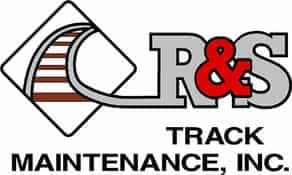
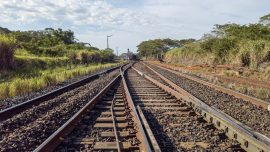

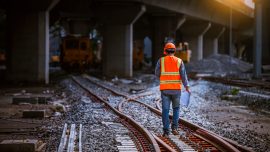
0 comments
Write a comment